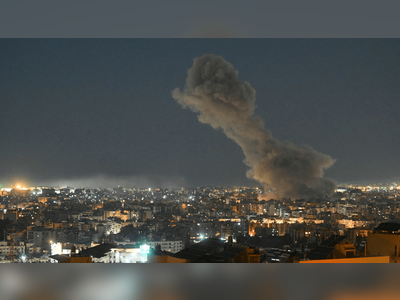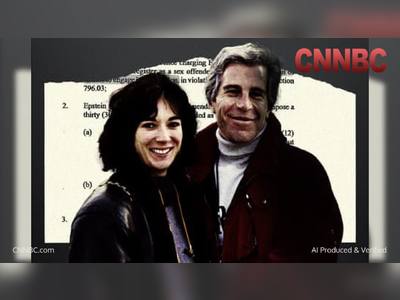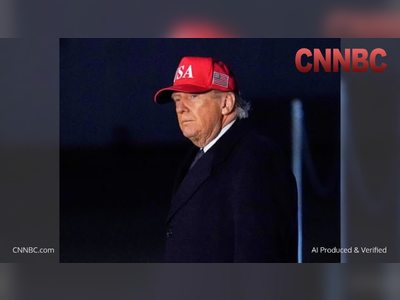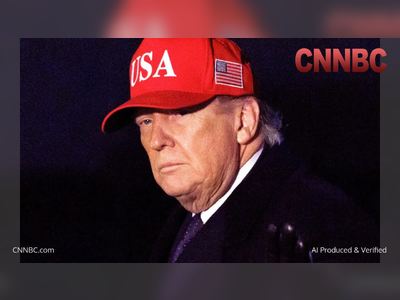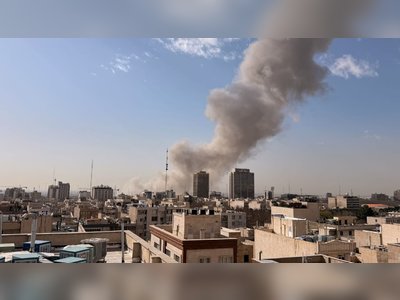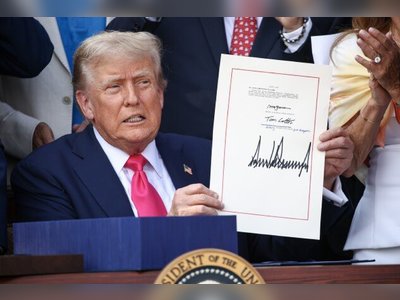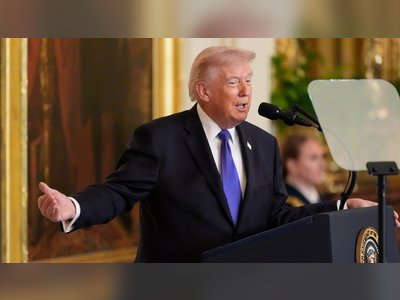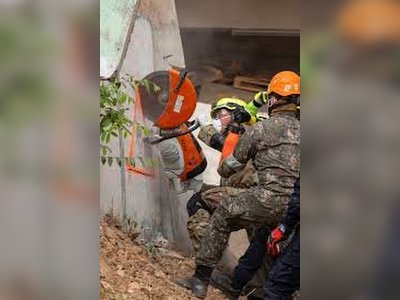South Korea's Democratic Dilemma: The Martial Law Controversy
The political turbulence surrounding President Yoon Suk Yeol's martial law proposal sparks a debate on power and democracy.
In a dramatic turn of events, South Korea finds itself grappling with a crisis of democracy as President Yoon Suk Yeol faces heated backlash and scrutiny for his controversial attempt to declare martial law.
The unfolding saga, marked by investigations into potential insurrection, reveals a stark test of the nation's democratic resilience.
President Yoon's move, unprecedented in recent times, has stirred echoes of the country's troubled history with authoritarian regimes.
The declaration of martial law under the pretext of countering 'anti-state forces' has raised profound concerns about the balance of power and democratic ideals in South Korea.
While his supporters might argue it was a measure for national security and stability, critics see it as an overzealous misstep with severe ramifications.
The opposition's relentless drive to impeach President Yoon, despite significant challenges, underscores a deep-seated commitment to holding power accountable.
Deploying martial law against perceived parliamentary threats draws disturbing parallels to a past many South Koreans hoped had been relegated to history.
This is not merely a political crisis; it signifies a crucial confrontation over national identity.
However, the ruling party's firm stance against impeachment suggests internal belief in President Yoon’s leadership, despite controversy.
This political solidarity might stem from genuine confidence in his vision or possibly from fears of the potential destabilizing consequences of such a crisis.
Public sentiment plays a crucial role in this narrative.
Citizens have taken to the streets, expressing discontent and widening the chasm between the government and its constituents.
This growing public unrest signifies a pivotal moment where citizen advocacy challenges governmental actions.
Compounding these internal tensions are the geopolitical dynamics of the region.
South Korea's democracy frequently contends with pressures from its powerful neighbors, adding layers to the domestic turbulence.
As the investigations unfold, South Korea stands at a crossroads.
The next few months will be critical in defining whether this democratic test fortifies or undermines its political framework.
It is a moment of introspection where the nation must decide: will it emerge with a strengthened democratic identity, or will this crisis redefine its political landscape?
As famously stated, 'Democracy is a journey, not a destination,' and South Korea’s journey is at a crucial juncture.
The unfolding saga, marked by investigations into potential insurrection, reveals a stark test of the nation's democratic resilience.
President Yoon's move, unprecedented in recent times, has stirred echoes of the country's troubled history with authoritarian regimes.
The declaration of martial law under the pretext of countering 'anti-state forces' has raised profound concerns about the balance of power and democratic ideals in South Korea.
While his supporters might argue it was a measure for national security and stability, critics see it as an overzealous misstep with severe ramifications.
The opposition's relentless drive to impeach President Yoon, despite significant challenges, underscores a deep-seated commitment to holding power accountable.
Deploying martial law against perceived parliamentary threats draws disturbing parallels to a past many South Koreans hoped had been relegated to history.
This is not merely a political crisis; it signifies a crucial confrontation over national identity.
However, the ruling party's firm stance against impeachment suggests internal belief in President Yoon’s leadership, despite controversy.
This political solidarity might stem from genuine confidence in his vision or possibly from fears of the potential destabilizing consequences of such a crisis.
Public sentiment plays a crucial role in this narrative.
Citizens have taken to the streets, expressing discontent and widening the chasm between the government and its constituents.
This growing public unrest signifies a pivotal moment where citizen advocacy challenges governmental actions.
Compounding these internal tensions are the geopolitical dynamics of the region.
South Korea's democracy frequently contends with pressures from its powerful neighbors, adding layers to the domestic turbulence.
As the investigations unfold, South Korea stands at a crossroads.
The next few months will be critical in defining whether this democratic test fortifies or undermines its political framework.
It is a moment of introspection where the nation must decide: will it emerge with a strengthened democratic identity, or will this crisis redefine its political landscape?
As famously stated, 'Democracy is a journey, not a destination,' and South Korea’s journey is at a crucial juncture.

